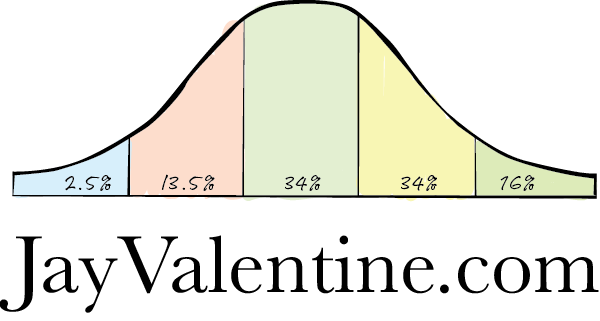
Several former colleagues called because they want a sales job with a disruptive startup. They are tired of their life at VMware, HP, Oracle and want both the financial upside and the thrill of doing something really innovative.
Delivering disruptive technology is like being a farmer—everyone wants to do it at 11:00 in the morning but not at 3:00 AM in a freezing barn, milking cows. Television shows like Startup.com have made doing a truly disruptive startup something fashionable.
It is not.
So here is what you can expect if you want that disruptive sales job:
- Every startup says it is disruptive—few are.
If the startup’s technology is not going to massively change what is already out there or do something nobody has done before, the founders would not be doing it. They think they are disruptive. Nobody does a startup they do not think is disruptive.
A company has a disruptive product if it can be tested to do something 10 times faster, or less expensively with less overhead or implementation. 99%+ of startups have technology that is little more than an improvement on an existing platform or a way to do something very well that has little value for the customer.
A friend of mine delivered a new database technology that takes an energy billing system, that runs in an $87 million data center, needing 24 days of process time, at least 4-6 hours a day—and he runs the exact application in 32 seconds—-on an iPhone. That is disruptive.
- Is it a product or a feature?
One of the most common misconceptions for a startup is that it has a “product.” Often, that product is not much more than a feature of a much larger offering and every sales process requires calling in other vendors to complete the solution. A very common example is a report writer that greatly improves the reporting of an industry standard database. That is a feature and when the database company comes out with something 50% as good, that startup is toast.
- Nice to have or a must have?
A great question to ask during an evaluation is whether the startup has an offering that is a “must have” or just a “nice to have.” The overwhelming number of startup products are nice to have; they do not change the trajectory of anyone’s business. A “nice to have” can never be disruptive. Never.
- Do you like to eat 3 meals a day?
Let’s talk about you. Can you live with almost no salary, just living on what you make on variable comp? Because if you can, you qualify for a disruptive startup. Really disruptive startups know they have a shot at changing a market. Often, they have proven it in some test scenario. They just know it. They aren’t going to pay some knucklehead rep who worked at VMware, SAP or Oracle and made 6 figures before showing up a big base or any base at all.
And if you are any good, you have either made enough money that you do not need a base salary or you are risk embracing enough to eat what you kill. So if they offer you the 6 figure base, a great marketing department, well-funded, VC backed infrastructure, you are highly unlikely to be at a real disrupter.
- Are you way ahead of the market?
One of the biggest mistakes startups make is they are way ahead of a market, so there is nothing to disrupt. The singular identifying characteristic is they have no competitors. Having no competitors is a death march because nobody is so smart they are the only ones doing something or something similar.
When we built the world’s first similarity search engine, we thought we were on top of the world because we had no competitors. That meant, unfortunately, that nobody could figure out what we did.
We had to find a use for a search engine that could find things no other technology could find. We spent too much time just explaining what we did and translating it to a business problem.
Fortunately, we found some huge fraud problems and became a virtual standard for on line auction fraud and insurance fraud, but it took too long and we learned the valuable lesson of why a VC is not your partner in hard times.
Being too far ahead of the market is almost as bad as missing a market. It may be worse.
- Where are the leads?
I often chat with CEOs of raw startups that have highly innovative, sometimes truly disruptive products. They have a universal refrain—-“what do I have to do to get a sales rep who can sell?”
As a disruptive startup CEO, you learn the lesson that selling and taking orders are fundamentally different livelihoods and finding a rep who can sell, not just get an order, is next to impossible.
One of the first questions I ask the CEO, having been one several times, is: “does it get you really angry that you are in the office at 7:00 AM and 7:00 at night, on the phone, trying to make something happen and your reps want to know “….where are the leads?”
That one question has never failed me. In 100% of the cases, that CEO comments on how frustrated he/she is because these reps who made big money at Oracle, SAP, VMware and other companies cannot make anything happen when nobody knows their company.
They cannot get a meeting if they do not have an SAP or Oracle logo. They cannot even get an appointment when nobody knows what their company does or knows its name.
- My product is disruptive; why isn’t the market beating down my door?
This is the title of another post, much longer because it is the singularly most cognitively frustrating part of taking a disruptive product to market.
Your product changes the entire landscape for a telco or insurance or financial business. You can demonstrate it and the benefits are starkly obvious. You start off with all the enthusiasm and you make calls, presentations, meet key execs.
The prospects tell you your technology will revolutionize their markets—you are so stoked!
Then, nothing happens. Nothing.
You learn the starkest lesson in having a disruptive technology—markets and corporations do not want disruption. That is the greatest frustration.
So, do you still want to work for a disruptive startup?
